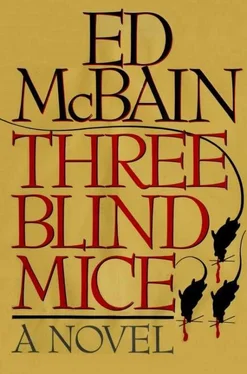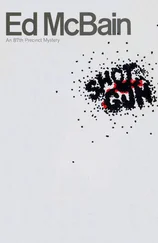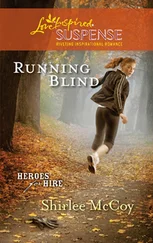Ed McBain - Three Blind Mice
Здесь есть возможность читать онлайн «Ed McBain - Three Blind Mice» весь текст электронной книги совершенно бесплатно (целиком полную версию без сокращений). В некоторых случаях можно слушать аудио, скачать через торрент в формате fb2 и присутствует краткое содержание. Город: New York, Год выпуска: 1990, ISBN: 1990, Издательство: Arcade, Жанр: Полицейский детектив, на английском языке. Описание произведения, (предисловие) а так же отзывы посетителей доступны на портале библиотеки ЛибКат.
- Название:Three Blind Mice
- Автор:
- Издательство:Arcade
- Жанр:
- Год:1990
- Город:New York
- ISBN:978-1559700801
- Рейтинг книги:3 / 5. Голосов: 1
-
Избранное:Добавить в избранное
- Отзывы:
-
Ваша оценка:
- 60
- 1
- 2
- 3
- 4
- 5
Three Blind Mice: краткое содержание, описание и аннотация
Предлагаем к чтению аннотацию, описание, краткое содержание или предисловие (зависит от того, что написал сам автор книги «Three Blind Mice»). Если вы не нашли необходимую информацию о книге — напишите в комментариях, мы постараемся отыскать её.
Three Blind Mice — читать онлайн бесплатно полную книгу (весь текст) целиком
Ниже представлен текст книги, разбитый по страницам. Система сохранения места последней прочитанной страницы, позволяет с удобством читать онлайн бесплатно книгу «Three Blind Mice», без необходимости каждый раз заново искать на чём Вы остановились. Поставьте закладку, и сможете в любой момент перейти на страницу, на которой закончили чтение.
Интервал:
Закладка:
“The Ford?” Matthew asked.
“That’s the one,” the man said. “Could you please move it, I gotta get a car out.”
“Sure,” Matthew said. “Are we finished here?” he asked Kahn.
“If you’ll just sign this release,” Kahn said.
Matthew read the paper swiftly. It granted boilerplate approval of the repair work to be done on the car, and permission to make direct payment to Croswell Auto. The man in the coveralls waited patiently in the doorframe while Matthew signed and dated the form, shook hands with Kahn, and then told Croswell he’d see him on the fourth.
“Five o’clock,” Marie said, without looking up from her keyboard.
“Five o’clock,” Matthew said, and followed the man out to where he’d parked the rented car. A Mazda with a bashed-in trunk was parked behind him. Matthew got into the Ford, started it, moved it forward until he had room for a turn, and then drove out of the driveway and out of the park. As he stopped for the traffic light on U.S. 41, some seven blocks away, he realized that he’d be driving this damn car longer than he’d hoped. Nothing wrong with that, he supposed, except that it was a rental. Who’s driving the rental? And a rental wasn’t a $30,000 smoky-blue Acura Legend coupe with genuine leather seats and a sun roof and a zero-to-sixty-in-eight-seconds capability. He had planned on getting away for the Labor Day weekend, maybe drive down to Lake Okeechobee. Now he’d have to make the trip — if he made it — in a rented Ford. And probably alone. He did not want to go on another vacation alone. He’d been to Italy alone. Alone was lonely.
The light changed.
He made his left turn and headed home.
He was in bed when the telephone rang at eleven that night. He recognized the voice at once; the only Vietnamese woman he knew was Mai Chim Lee.
“Mr. Hope,” she said, “I’m sorry to bother you so late at night…”
“Not at all,” he said.
“Thank you,” she said. “I know you are anxious, however, to talk to Trinh Mang Due, and…”
“Is he back?”
“Yes, this is why I am calling. A woman I know in the community…”
He realized she was referring to Little Asia.
“… telephoned just now to say he is home from Orlando. Shall I try to arrange an interview for sometime tomorrow?”
“Please,” Matthew said.
“All right, then, I will. And excuse me, again, for calling so late. I hope I didn’t wake you up.”
“No, no.”
“Well, good then, I’ll talk to you tomorrow. Good night,” she said, and hung up.
6
“This was a little past midnight,” Trinh Mang Due said. “I could not sleep because I was so worried about my son in Orlando, why he had not sent for me as he’d promised.”
He was speaking in the tongue of his Vietnamese village, a local dialect that had given Mai Chim difficulty at first, but which she had finally got the hang of. This was eleven o’clock on Tuesday morning and Trinh was packing all of his worldly possessions for the final move to Orlando, where his son and daughter-in-law were opening a takee-outee Vietnamese restaurant. He would not be moving till later this week, but he was taking no chances on being left behind; he would be packed and ready whenever the car was. The same nephew who had driven him up there and back would be driving him up there again.
Trinh looked like any one of the old men you saw on television while the Vietnam War was raging, squatting outside a thatched hut, pained eyes squinting into the camera, except that he wasn’t wearing the typical black cotton shorts and shirt and the conical straw hat. He was, instead, wearing a striped short-sleeved sports shirt, khaki trousers, and sandals. But he had the same narrow weather-lined face with the high cheekbones and brownish skin, the same dark eyes with the Mongolian single fold of eyelid, the same straggly white beard. Bustling about from cardboard carton to cardboard carton, putting into each his clothing and the few precious possessions he had carried halfway across the world, he talked about what had happened on the night of the murders.
Last Monday night.
The thirteenth of August.
He had not been able to sleep because his son and daughter-in-law had left for Orlando the week before, to find suitable lodgings for the entire family, and they had promised to send for him immediately, but he had not yet heard from them, and he was worried that they had abandoned him.
Trinh was sixty-eight years old.
In Vietnamese tradition, this was a time of life to be spent with one’s own family; a time of peace, introspection, and preparation; a time to be passed in visiting or receiving friends; a time to choose an expert geomancer who would advise upon the exact location of one’s tomb and the purchase of one’s coffin.
But this was America.
And Trinh had heard that in this country, the elderly were often left to die alone, or else were transported to homes where people other than family would reluctantly tend to their needs. So who could say that his son had not wearied of supporting an old man who could contribute nothing but legendary tales to the family’s wealth? Who could say that the move to Orlando was not merely a ruse to rid themselves of him? So, yes, he’d been extremely worried on that night a week ago…
Mai Chim said something to him in Vietnamese, apparently correcting him, because he nodded at once, and said, “Yes, eight days ago, that is so. I was worried, as I told you…”
… because it had been a while now since his son left for Orlando, and there are people here in the community who have telephones (although there is none in this house), and they are willing to take messages, so why has he not called to say they are having difficulty finding a suitable home, or else there is some problem with acquiring the restaurant, or what ever the circumstances may be? Why leave an old man here to worry and wonder?
He thinks he hears a scream.
He thinks it is perhaps the scream that awakens him.
But perhaps not. He has been tossing and turning ever since ten o’clock, when he went to bed. Perhaps it is only his own restlessness that at last nudges him awake to the sounds of the night. A faraway train whistle. A dog barking. A scream?
In the darkness, he looks at the luminous dial of his wristwatch, which he purchased at the U.S. Army PX in Honolulu before beginning his long journey to the mainland, a journey that has taken him to four states and seven cities, a journey that may yet end in prosperity in Orlando, Florida, the second home of Mickey Mouse.
His watch reads ten minutes past midnight.
The night is sticky and hot.
His sheets are soggy with the moisture of the night and the dampness of his own anxiety. He throws back the top one and then swings his thin legs over the side of the narrow bed, goes to the door of the house, peers out through the screen door, and sees…
A man.
Running.
“Through the screen?” Matthew asked. “Did he see this man through the screen?”
Mai Chim asked the question in Vietnamese. Trinh answered.
“Yes,” Mai Chim said. “Through the screen.”
Then it’s possible his view was distorted, Matthew thought.
“I could see him sharply in the moonlight,” Mai Chim said, translating as Trinh spoke again. “He was wearing…”
… a yellow cap and a yellow jacket.
A tall, broad man.
Running toward the curb.
There was an automobile parked at the curb. The man ran around to the driver’s side of the car, opened the door…
“Did he see the man’s face?” Matthew asked.
Mai Chim translated this, and then listened to Trinh again.
“Yes,” she said. “A white man.”
Читать дальшеИнтервал:
Закладка:
Похожие книги на «Three Blind Mice»
Представляем Вашему вниманию похожие книги на «Three Blind Mice» списком для выбора. Мы отобрали схожую по названию и смыслу литературу в надежде предоставить читателям больше вариантов отыскать новые, интересные, ещё непрочитанные произведения.
Обсуждение, отзывы о книге «Three Blind Mice» и просто собственные мнения читателей. Оставьте ваши комментарии, напишите, что Вы думаете о произведении, его смысле или главных героях. Укажите что конкретно понравилось, а что нет, и почему Вы так считаете.












